Sudan
Our programme in Sudan
Amid Sudan’s attempted transition to democratic governance, tensions grew between the paramilitary Rapid Support Forces (RSF), under the leadership of General Mohamed Hamdan Dagalo, known as ‘Hemedti’, and the Sudanese Armed Forces (SAF), led by General Abdel Fattah Al-Burhan. Such tensions had steadily escalated since the October 2021 coup, but intense fighting broke out between the two parties on 15th April 2023. As internal and external calls for a cessation of hostilities have remained unheeded, the war has spread from Khartoum to other areas, with Darfur and Kordofan being particularly affected. The devastating conflict has become significantly more violent over the past few months, leading to injuries, harassment and detentions of political opponents, gender and sexual based violence and death. Large-scale destruction has caused significant disruptions to essential lifesaving services. As of September 2024, the war has left over 25 million Sudanese in need of humanitarian assistance, and over 10 million displaced either internally or in neighbouring countries (particularly Egypt, Ethiopia, Kenya, Uganda, South Sudan and Chad).
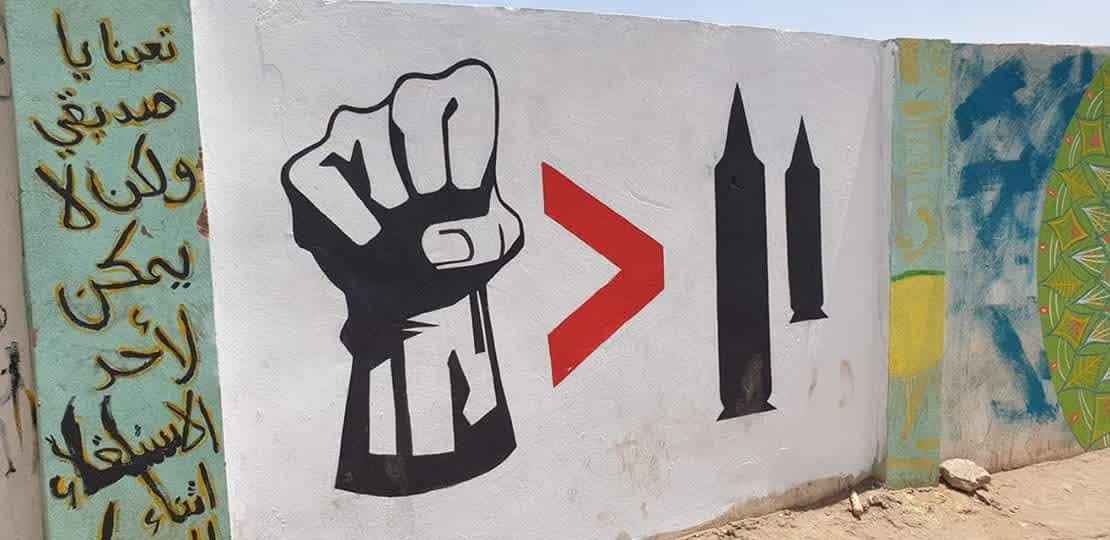
LPI in Sudan
Working in Sudan since the early 1990s, LPI supports communities through dialogue-to-action, to build positive relations between people from diverse cultural backgrounds, and with a particular emphasis on youth. For example, from 2012 to 2022, LPI supported Sustained Dialogue processes at the University of Khartoum, the Ahfad University for Women, and at the Peace& Development Studies Centre at the University of Dalanj in South Kordofan State. During those years, LPI trained young women and men moderators to facilitate dialogue among diverse Sudanese youth. In recent years, LPI partnered with the Gesr Centre for Development to lead community-based Sustained Dialogue processes outside of university campuses. Capturing insights from the analysis of our work with Sustained Dialogue in Sudan, Ethiopia and Kenya, in 2017 LPI made a submission to the Progress Study on United Nations Security Council Resolution 2250 on Youth, Peace and Security: 'Being and Becoming a Peacebuilder: Insights from 20,000 youth-led dialogues in the Horn of Africa'.
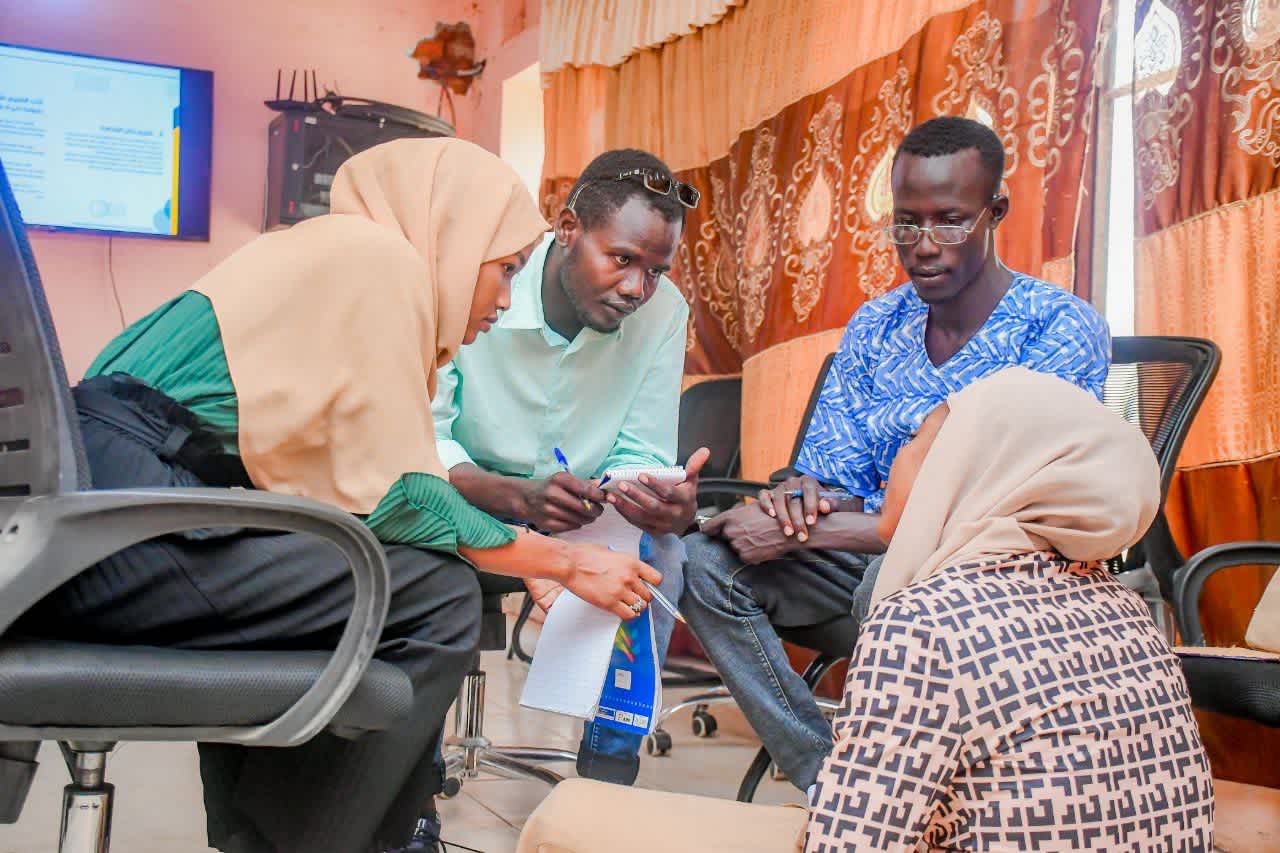
Our work
Since the start of the current crisis, LPI’s Sudan Office relocated to Nairobi, where our team is working on several peacebuilding initiatives with civil society across Sudan and in neighbouring countries (primarily Ethiopia, Kenya and Uganda). We have been developing new partnerships with civil society and academic institutions to explore opportunities for meaningful engagement in the current evolving context. In addition, we have been piloting a range of methodologies and approaches as well as growing an extensive network of formal and informal actors engaged in peace, governance, and justice across Sudan and the surrounding region.
In view of the current dynamic context, our work in Sudan focuses on three pillars, which strongly align with LPI's strategic priorities. Our work across the three pillars will remain adaptive, and prioritise conflict sensitivity in view of the highly fluid and unstable conditions in Sudan. While each pillar can be advanced individually, the intended long-term goal is to advance them in parallel within an holistic effort toward the strengthening of Sudanese civil society.
Pillar 1: Supporting rapid and responsive civil society action within Sudan
As the situation in Sudan remains highly fragile, we seek to support local civil society actors within the country in implementing short-term initiatives that can strengthen peace in limited geographic areas, as the situation in Sudan remain highly fragile. Support includes forms of institutional development, convening, training, small grants, and in-kind support. Activities related to this pillar are cyclical loops of: convening, learning, implementing and reconvening.
Pillar 2: Unifying civil society outside of Sudan
There are a variety of platforms through which Sudanese civil society engages with high-level advocacy targets in Nairobi, Kampala, and Addis Ababa, to name a few. However, there are few spaces that foster the necessary relationship-building between these civil society actors. We seek to create and strengthen civil society networks to foster social processes, informed by peacebuilding principles and models, through which participants can share their experiences and stories, strengthen their cohesion, coordinate, and gradually rebuild the fabric of Sudanese civil society.
Pillar 3: Peacebuilding in the digital space
The conflict in Sudan also takes place virtually through social media and digital platforms such as Facebook on which well-organised groups promote violence. Sudanese voices speaking up for peace are isolated, unheard, and criticised for being uncompelling. We seek to counter this negative environment by challenging false information and disseminating content that strengthens a greater constituency in favour of peace.
Currently, we are implementing three initiatives that contribute to our three strategic pillars:
Hilla Amna: Supporting Social Cohesion through Civil Society: we work with 6 CSOs to enhance their operational capacity and their work on social cohesion amidst the ongoing crisis, and to expand youth civic participation in the promotion of peace, trust, social cohesion and in community politics.
Collective Voices for Peace in Sudan: we focus on building inclusive and influential Sudanese civil society networks to promote peaceful solutions to the war, through the establishment of civil society platforms in Ethiopia, Kenya and Uganda, and a virtual platform active across all states of Sudan. The project’s overall goal focuses on change that is within reach: an inclusive, influential Sudanese civil society that builds momentum around peaceful solutions to the conflict, within Sudan and regionally.
Capacities for Peace (C4P) in Sudan and Kenya: we work with the Peace Bridge Association, to strengthen their institutional and technical capacities and support their peacebuilding engagement at community level.
All three initiatives maintain a high degree of flexibility within the current highly-dynamic context.
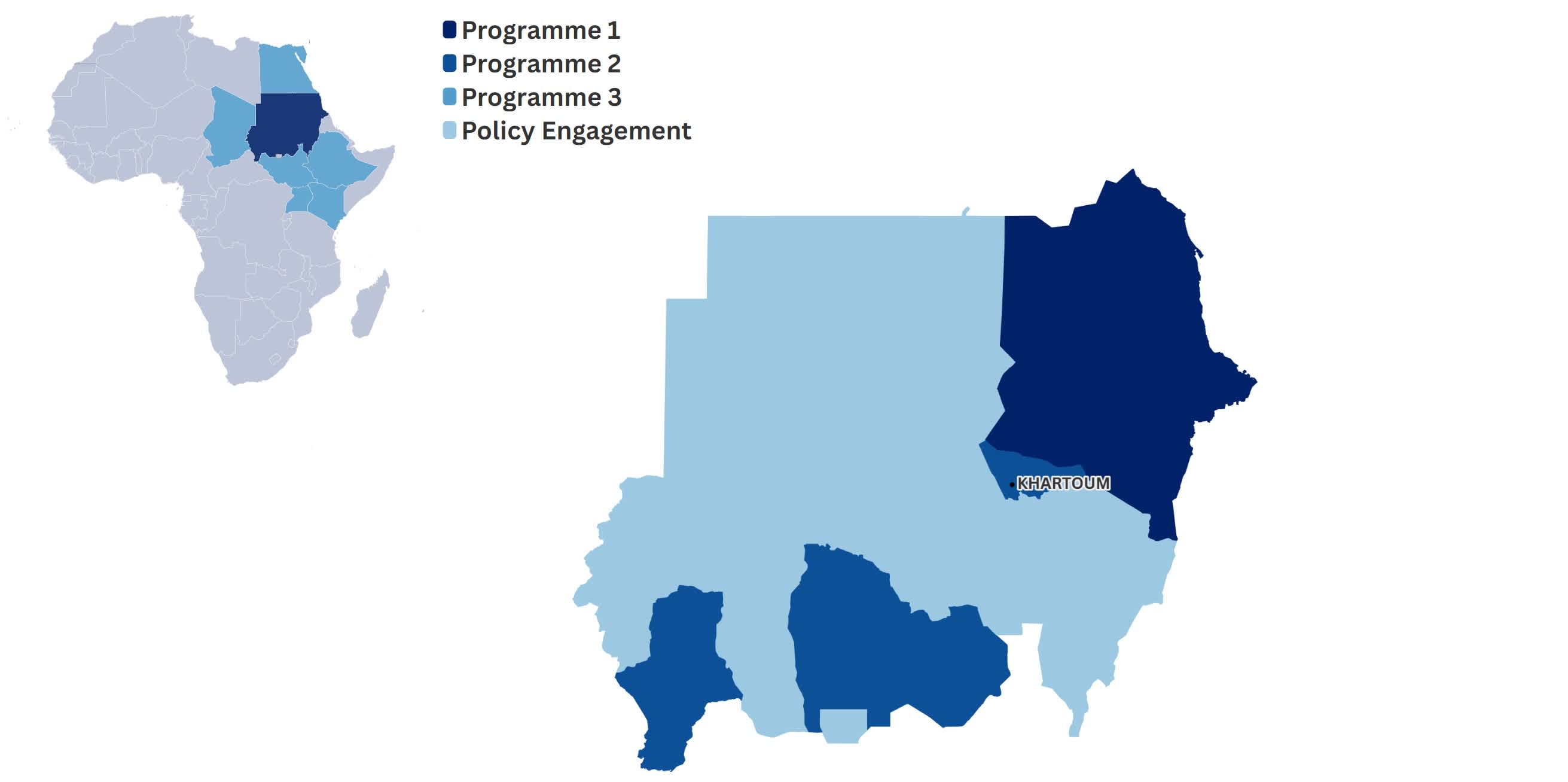
Partners are key to our success
Over the years, LPI has built a network of partners within Sudan, including academic institutions such as the University of Khartoum, the Ahfad University for Women in Khartoum State, and the Peace & Development Studies Centre at the University of Dalanj in South Kordofan State, and with civil society organisations such as Gesr Center for Development. LPI also organises forums on peace and conflict related topics that bring together an even broader group of actors from civil society.
Current programme partners
The Programme Hilla Amna was designed in consultation with three registered Sudanese CSOs, and is led and implemented by them, together with an additional three Community-Based Organisations (CBOs).
Leaders’ Organisation for Sustainable Development A registered organisation with the Humanitarian Aid Commission (HAC) since 2020. It has an office that employes 10 staff and is supported by 20 volunteers. The organisation promotes social cohesion between Sudanese IDPs and the host community. Their operations are often impeded by the security situation which constrains freedom of assembly, speech and association.
Friends of Peace and Development Organisation (FPDO) A voluntary, non-sectarian, non-profit and non-governmental organisation registered with HAC since 2003. Its mission is to contribute to peace and development in Sudan by promoting sustainable development in accordance with the Millennium Development Goals through projects in education, health, nutrition, WASH, livelihoods, and community security. The organisation also strives to be an advocate for the poor and suffering and commits itself to the principles of non-discrimination and gratuitous giving.
Portive Cultural Center Registered cultural centre since 2018, it is a youth initiative that works towards achieving meaningful change through the means of culture and arts. The organisation works on peace issues through culture and seeks to activate the cultural and artistic role of youth by developing their technical skills and encouraging innovation. Its goald is to give Sudanese youth social responsibility and a stake in the country's civil society.
Elsharq Cultural Center A registered cultural centre with the Ministry of Culture and Information since 2008. The organisation strives to spread the culture of human rights, democracy and peace, and to promote the values and principles of good governance with a strong focus on transitional justice.
Bashaer Almostagbal Organisation A registered youth voluntary organisation with the Ministry of Youth and Sports since 2016. The organisation works to empower Sudanese youth in the health, social, environmental and protection sectors through capacity building, awareness-raising, forums, community dialogues, and by creating safe spaces for youth decision-making within their own communities. In particular, it seeks to bolster youth inclusion and participation in their local communities, to assist community development, and to improve security conditions by meeting immediate humanitarian needs.
Hope and Friendship for Development Organisation A registered organisation with HAC since 2015. It is a national, non-governmental, non-profit, voluntary organisation that works with local communities to promote peace, stability, resilience, and sustainable development by implementing lifesaving and recovery activities of a sustainable and durable character. The organisation also focuses on collective natural resource management and conflict transformation.
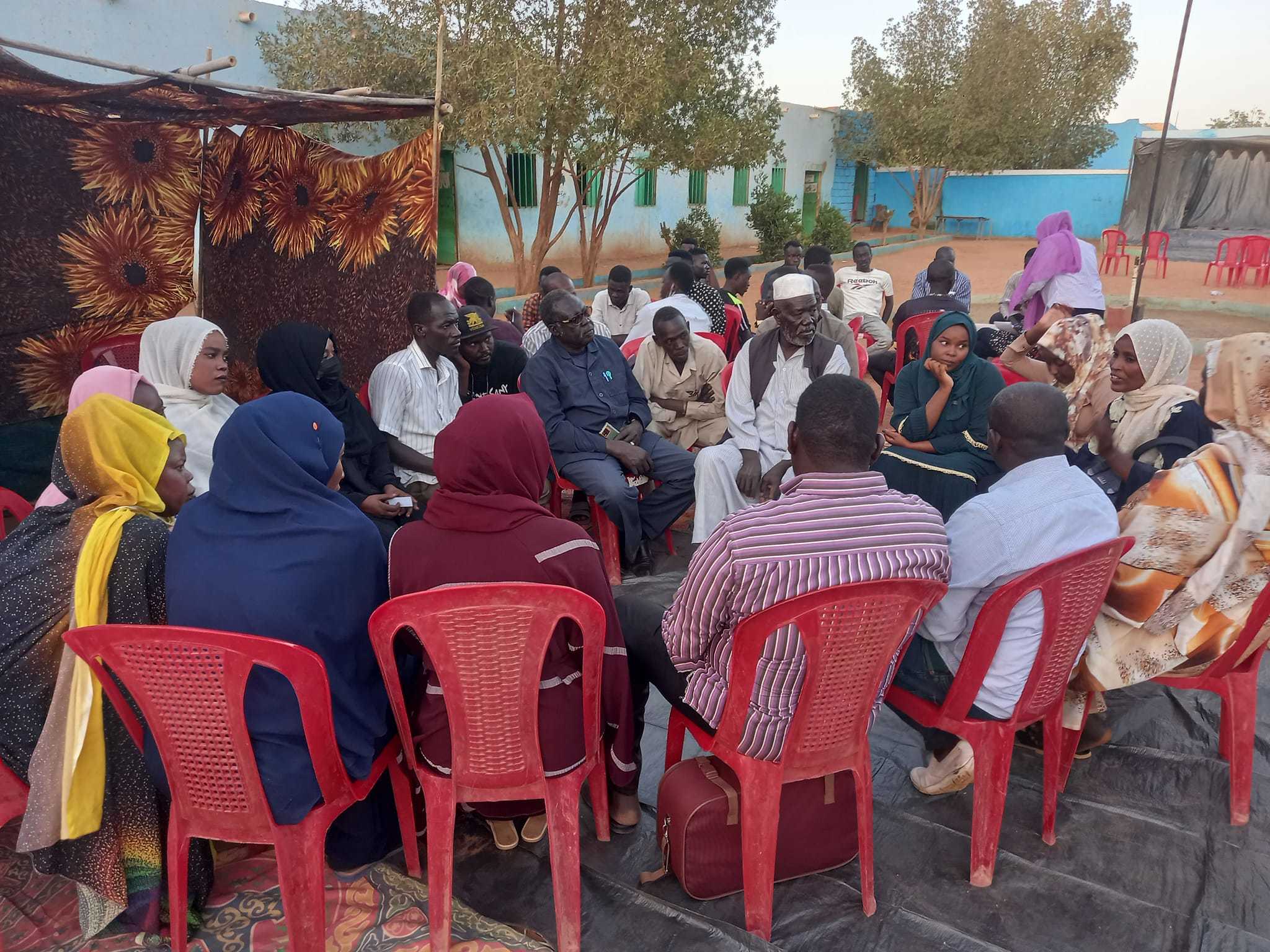
The Programme Collective Voices for Peace seeks to create collective spaces for the healing of trauma and for the development of grassroots solutions to conflict to be later relayed to higher-level political processes. Such an effort requires the direct engagement of Sudanese partners for the solutions to be owned, designed and informed at the lowest level possible.
Waey Organisation A non-governmental organisation established in 2017 with the mission to strengthen and develop the capabilities of Sudanese citizens to confront challenges and issues in their path towards building a brighter future. Such a future should be based on principles of human rights, local Sudanese experiences and cultures, and human values. The organisation strives to do so by creating spaces for dialogue and learning that enable citizens' participation, and by organising awareness-raising multimedia campaigns on themes such as Cholera prevention and the role of identity in conflicts.
Salaamedia Center An organisation dedicated to serving the Sudanese community by delivering independent, unbiased, and comprehensive news and media programs. Salaamedia commits itself to fostering an informed and engaged society through good journalism that promotes democratic values, supports peacebuilding efforts, and contributes to sustainable development in Sudan. In practical terms, the Center engages in a number of activities from trainings and workshops on peace communication to surveys for conflict and gender analysis.
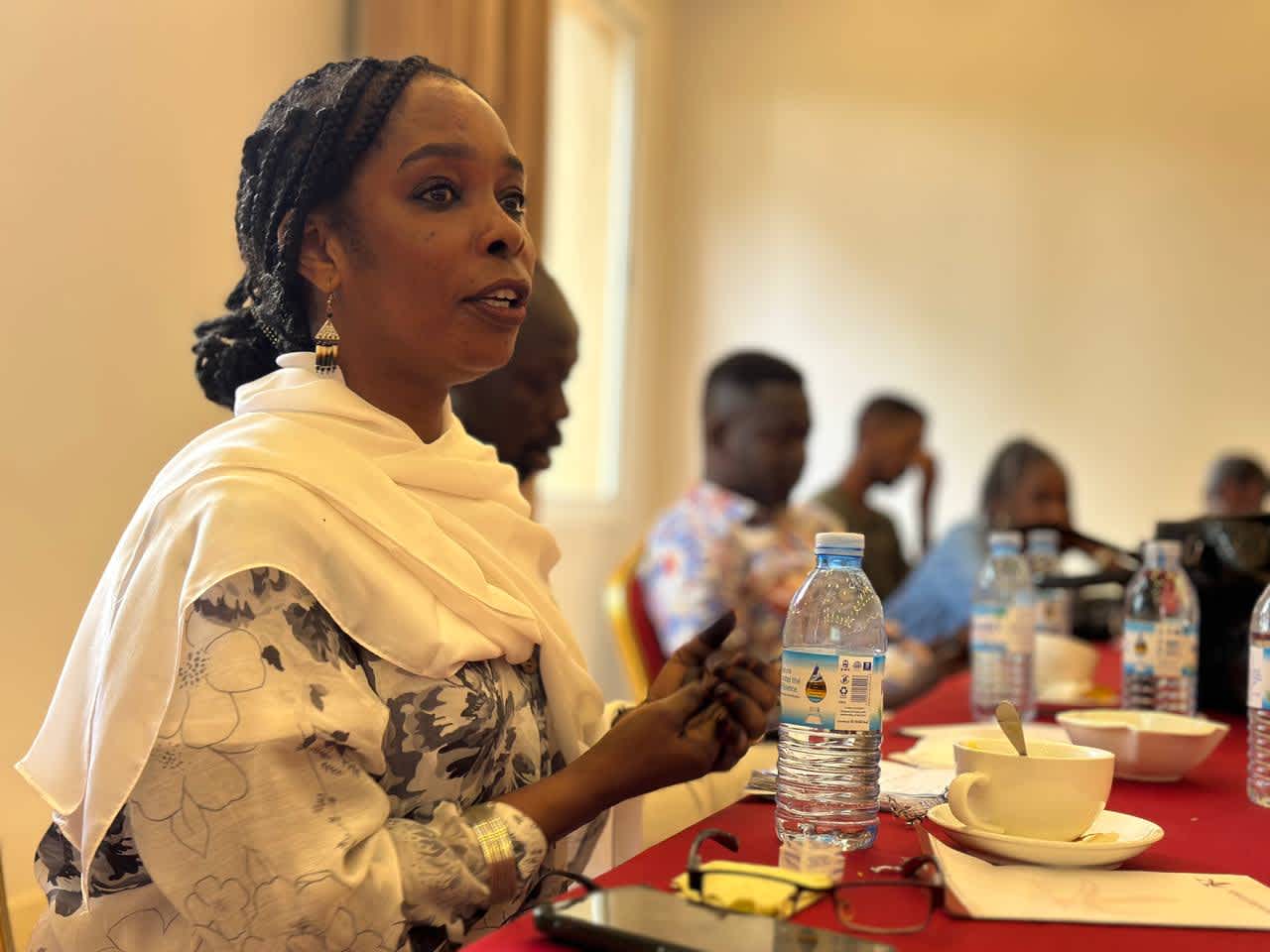
The Programme Capacities for Peace (C4P) is a programme funded by the Swedish Mission Council (SMC) that is implemented and led by two CSOs, operating in Kenya and in Sudan, with LPI's financial and technical support. The Programme was partly designed out of the two partners' strategic objectives and thematic focus.
Peace Bridge Association (PBA) A voluntary, non-governmental, non-profit organisation founded in 2003 and officially registered at the Humanitarian Aid Commission (HAC) in Khartoum. PBA’s vision is to become a leader in sustainable development processes within Sudan by fostering peaceful and harmonious communities that share a culture of acceptance of ‘the Other’. Its mission is to reduce tensions and conflicts among Sudanese communities supporting local solutions that include youth, children and women, and to implement humanitarian and development projects in: Peacebuilding; Food Security and Livelihoods; Water, Sanitation & Hygiene (WASH); Education, Protection, and Community Development. PBA has an operational presence in several conflict ‘hotpots’ across Sudan.
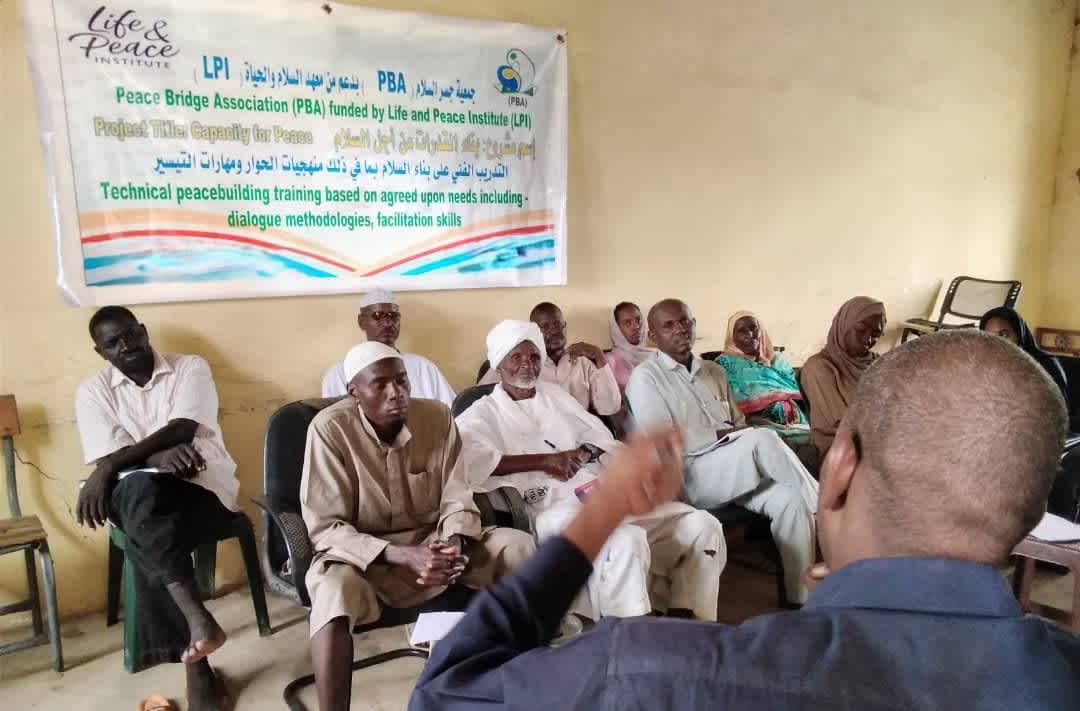
Our donors
Donors and organisations who have supported LPI’s work in Sudan over the past 15 years include: the Swedish International Development Cooperation Agency (Sida), Swedish Mission Council, Church of Sweden, United States Institute for Peace (USIP), Foreign, Commonwealth and Development office (FCDO), Chemonics (OTI/USAID), DT Global (OTI/USAID), Pact, and the European Union.
Read more about LPI's donors on the funding & finance page.
Resources
More resources are available in the Publications & Reports page of our website and in our flagship publication: the Horn of Africa Bulletin.
Related articles & resourcesSudan
LPI’s Sudan programme is administered from the office in Nairobi, Kenya.
Postal Address
Life & Peace Institute, P.O. Box 64495-00620, Nairobi, Kenya
Visiting Address
AACC Compound, Waiyaki Wy, Nairobi, Kenya
Phone +254 (0) 20 4440433
